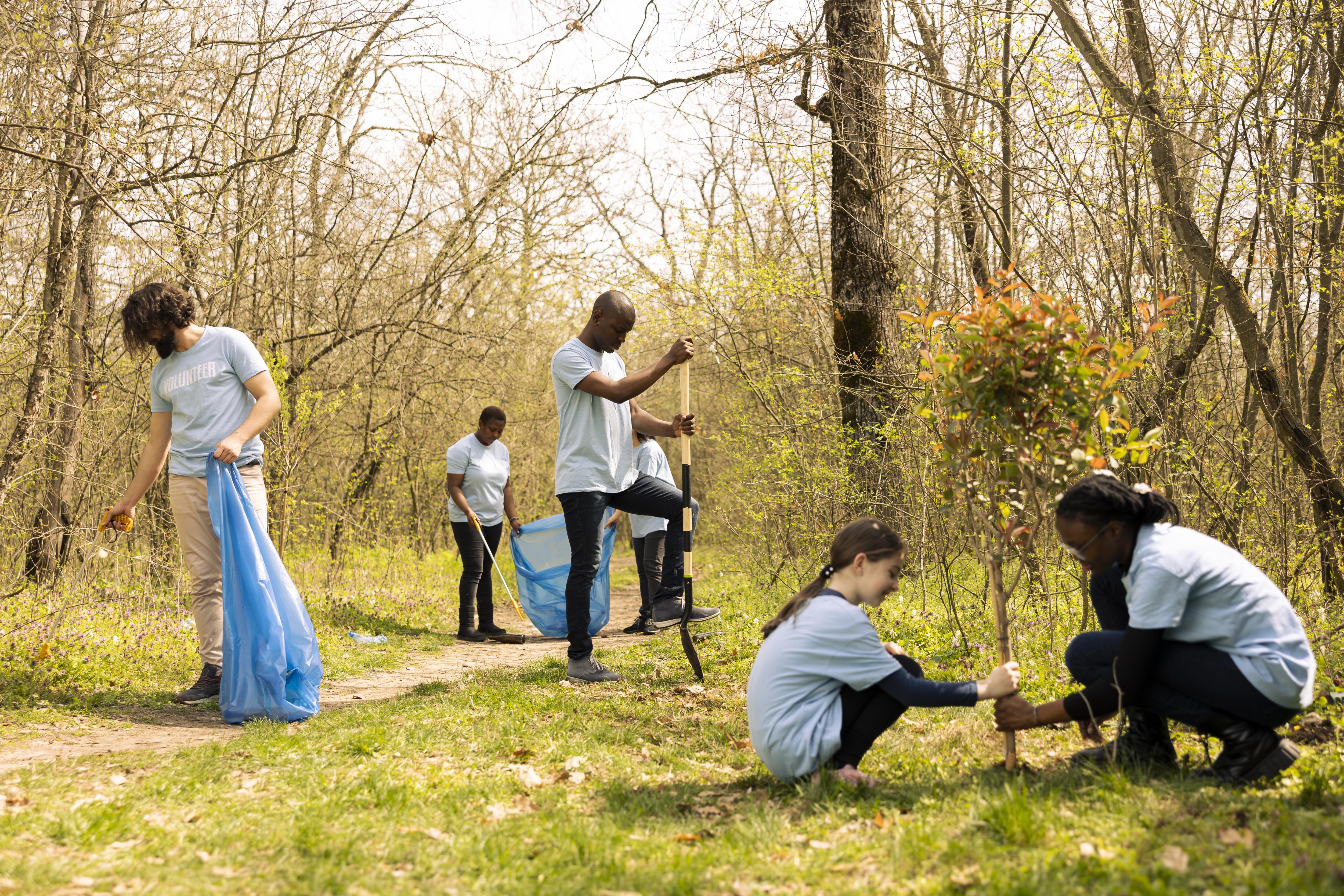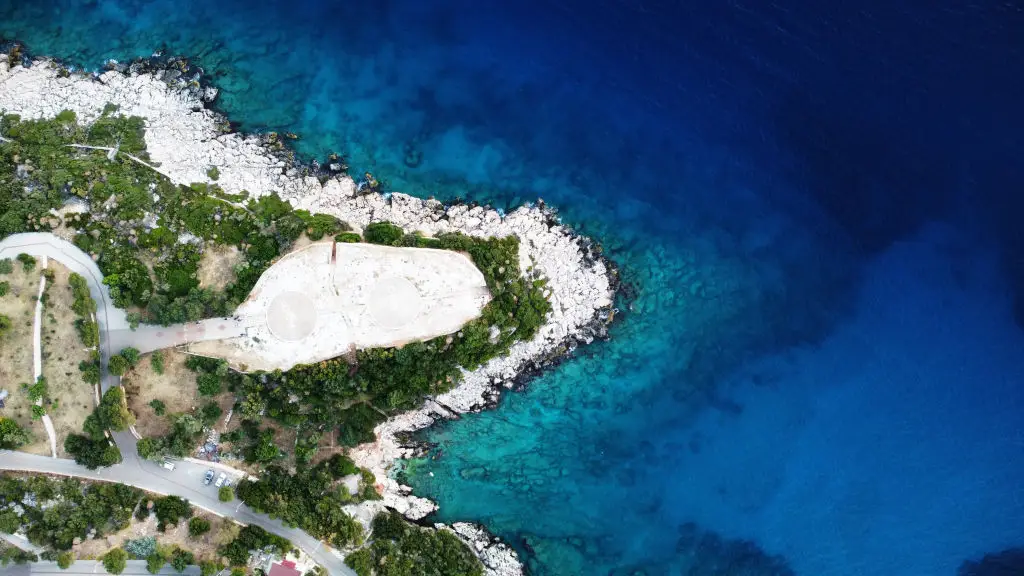12 Ethical Travel Trends Set to Dominate the Next Decade
In recent years, the travel industry has witnessed a profound transformation, driven by a growing awareness of its environmental and social impacts. As we step into the next decade, ethical travel is no longer just a niche market; it is becoming a mainstream movement poised to revolutionize the way we explore the world. This shift is fueled by conscious travelers who seek meaningful experiences that align with their values of sustainability, cultural respect, and community support. This article delves into 12 ethical travel trends that are set to redefine the industry, offering insights into how these practices can create a more responsible and enriching travel experience for both travelers and host communities. Let's take a look!
1. Carbon-Neutral Travel: Reducing the Environmental Footprint

One of the most significant trends in ethical travel is the push towards carbon-neutral travel. As the impact of climate change becomes increasingly evident, travelers and industry players are seeking ways to minimize their carbon footprints. This involves a combination of reducing emissions and offsetting those that cannot be avoided. Airlines, for instance, are investing in more fuel-efficient aircraft and exploring alternative fuels that produce fewer emissions. Meanwhile, carbon offset programs allow travelers to compensate for their emissions by funding projects that reduce or sequester carbon, such as reforestation or renewable energy initiatives. In addition to individual efforts, there is a growing movement towards collective action within the industry. Travel companies are forming alliances to share best practices and develop industry-wide standards for sustainability. This includes setting ambitious targets for reducing emissions and increasing transparency in reporting progress. By working together, stakeholders can drive meaningful change and create a more sustainable future for travel. As more travelers become aware of the impact of their journeys, they are increasingly choosing providers that prioritize sustainability, creating a positive feedback loop that encourages further innovation and investment in carbon-neutral solutions.
2. Slow Travel: Embracing Depth Over Distance

Slow travel is an emerging trend that encourages travelers to savor their journeys rather than rushing from one destination to another. This approach emphasizes quality over quantity, allowing travelers to immerse themselves in local cultures and environments. By spending more time in fewer places, travelers can develop a deeper understanding of the destinations they visit and forge meaningful connections with local communities. This not only enriches the travel experience but also reduces the environmental impact associated with frequent flights and rapid itineraries. The slow travel movement is gaining traction as more people recognize the benefits of a more mindful approach to exploration. It encourages travelers to engage with local traditions, cuisine, and landscapes, fostering a greater appreciation for the diversity and richness of the world. This trend also supports local economies by directing spending towards small businesses and community-based initiatives. By choosing to travel slowly, individuals can contribute to the preservation of cultural heritage and the promotion of sustainable development, creating a positive impact that extends beyond their own experiences.
3. Community-Based Tourism: Empowering Local Economies

Community-based tourism (CBT) is a model that prioritizes the involvement and empowerment of local communities in the tourism industry. This approach ensures that the benefits of tourism are distributed equitably, with local people playing an active role in decision-making and management. CBT initiatives often focus on promoting cultural heritage, environmental conservation, and social equity, providing travelers with authentic experiences that are deeply rooted in the local context. By supporting CBT, travelers can contribute to the economic development of host communities while gaining unique insights into their way of life. The success of community-based tourism relies on strong partnerships between local communities, governments, and the private sector. These collaborations help to build capacity, improve infrastructure, and develop sustainable tourism products that reflect the values and aspirations of the community. By prioritizing local ownership and control, CBT helps to preserve cultural traditions and protect natural resources, ensuring that tourism development aligns with the long-term interests of the community. As more travelers seek authentic and meaningful experiences, community-based tourism offers a compelling alternative to mass tourism, creating opportunities for cultural exchange and mutual understanding.
4. Regenerative Travel: Beyond Sustainability

Regenerative travel is an innovative approach that goes beyond sustainability by aiming to restore and regenerate the environments and communities impacted by tourism. This trend emphasizes the importance of leaving destinations better than they were found, actively contributing to the health and resilience of ecosystems and societies. Regenerative travel involves practices such as habitat restoration, biodiversity conservation, and community empowerment, creating a positive impact that extends beyond the duration of a visit. The principles of regenerative travel are being embraced by a growing number of travel providers and destinations, who are reimagining the role of tourism in the context of environmental and social challenges. This involves designing experiences that promote ecological restoration and cultural revitalization, encouraging travelers to participate in activities that have a lasting positive impact. By adopting a regenerative mindset, the travel industry can play a crucial role in addressing global challenges such as climate change, habitat loss, and social inequality. As travelers become more conscious of their impact, they are increasingly seeking out opportunities to contribute to the regeneration of the places they visit, fostering a sense of stewardship and responsibility.
5. Cultural Preservation: Safeguarding Heritage

Cultural preservation is a key component of ethical travel, as it seeks to protect and celebrate the unique traditions, languages, and practices of diverse communities around the world. In an era of globalization, there is a growing concern about the erosion of cultural heritage, as traditional ways of life are often overshadowed by modern influences. Ethical travelers are increasingly aware of the importance of supporting initiatives that safeguard cultural heritage, ensuring that future generations can continue to enjoy and learn from the rich tapestry of human history. Efforts to preserve cultural heritage often involve collaboration between local communities, governments, and cultural organizations. These partnerships work to document and promote traditional practices, create educational programs, and develop sustainable tourism products that highlight cultural diversity. By participating in cultural preservation initiatives, travelers can gain a deeper appreciation for the history and identity of the destinations they visit, while also contributing to the resilience and vitality of local cultures. This trend not only enriches the travel experience but also fosters a greater sense of global citizenship and intercultural understanding.
6. Wildlife Conservation: Protecting Biodiversity

Wildlife conservation is an integral aspect of ethical travel, as it seeks to protect the planet's biodiversity and ensure the survival of endangered species. As human activities continue to threaten natural habitats, the travel industry has a responsibility to promote practices that safeguard wildlife and support conservation efforts. Ethical travelers are increasingly drawn to experiences that allow them to connect with nature and contribute to the protection of vulnerable ecosystems. Many travel providers are partnering with conservation organizations to create experiences that raise awareness about the importance of biodiversity and provide opportunities for travelers to participate in conservation activities. This includes initiatives such as wildlife monitoring, habitat restoration, and anti-poaching efforts. By supporting these programs, travelers can play an active role in preserving the natural world and ensuring that future generations can continue to enjoy its wonders. Wildlife conservation is not only essential for maintaining ecological balance but also for supporting the livelihoods of communities that depend on healthy ecosystems.
7. Ethical Animal Encounters: Promoting Responsible Tourism

Ethical animal encounters are an important consideration for travelers who wish to engage with wildlife in a responsible and respectful manner. Traditional tourism activities, such as elephant rides and dolphin shows, have come under scrutiny for their negative impact on animal welfare. In response, there is a growing movement towards ethical wildlife experiences that prioritize the well-being of animals and promote conservation. Ethical animal encounters often involve observing wildlife in their natural habitats, guided by knowledgeable experts who educate travelers about the importance of conservation and responsible tourism. This approach not only minimizes the impact on wildlife but also provides travelers with a more authentic and meaningful experience. By choosing ethical wildlife experiences, travelers can support initiatives that protect animals and their habitats, while also raising awareness about the challenges facing wildlife conservation. This trend reflects a broader shift towards more compassionate and informed travel practices, encouraging travelers to consider the ethical implications of their choices.
8. Sustainable Accommodation: Eco-Friendly Lodging

Sustainable accommodation is a cornerstone of ethical travel, as it seeks to minimize the environmental impact of lodging while enhancing the well-being of local communities. Eco-friendly accommodations are designed to reduce energy and water consumption, minimize waste, and promote the use of renewable resources. This includes practices such as energy-efficient lighting, water-saving fixtures, and recycling programs, as well as the use of locally sourced materials and products. In addition to environmental considerations, sustainable accommodations often prioritize social and economic sustainability. This involves supporting local economies by sourcing goods and services from nearby businesses, providing fair wages and working conditions for staff, and engaging with local communities to promote cultural exchange and mutual understanding. As travelers become more conscious of their impact, they are increasingly seeking out accommodations that align with their values, driving demand for sustainable lodging options. This trend not only benefits the environment and local communities but also enhances the overall travel experience by offering a more authentic and meaningful connection to the destination.
9. Digital Detox: Reconnecting with the Present

In a world dominated by technology and constant connectivity, the trend of digital detox travel offers a refreshing opportunity for travelers to disconnect from their devices and reconnect with the present moment. Digital detox experiences encourage travelers to unplug from their screens and immerse themselves in the natural beauty and cultural richness of their surroundings. This approach promotes mindfulness and well-being, allowing travelers to fully engage with their environment and the people they encounter. Digital detox travel often involves destinations that emphasize nature and tranquility, such as remote retreats, wellness centers, and eco-lodges. These experiences provide a sanctuary from the distractions of modern life, offering activities such as meditation, yoga, and nature walks that promote relaxation and self-reflection. By embracing digital detox travel, individuals can cultivate a greater sense of awareness and appreciation for the world around them, fostering a deeper connection to their surroundings and themselves. This trend highlights the importance of balance and presence in an increasingly fast-paced and digital world.
10. Voluntourism: Meaningful Contributions to Communities

Voluntourism combines travel with volunteer work, offering travelers the opportunity to make meaningful contributions to the communities they visit. This trend reflects a growing desire among travelers to engage in socially responsible activities and give back to the places they explore. Voluntourism projects often focus on areas such as education, healthcare, environmental conservation, and community development, providing valuable support to local initiatives and organizations. While voluntourism has the potential to create positive change, it is important for travelers to choose reputable programs that prioritize the needs and goals of the community. This involves conducting thorough research and selecting projects that are sustainable, ethical, and aligned with local priorities. By participating in well-structured voluntourism programs, travelers can gain a deeper understanding of the challenges facing host communities and contribute to meaningful solutions. This trend not only enhances the travel experience but also fosters a sense of global citizenship and social responsibility, encouraging individuals to consider the impact of their actions and choices.
11. Fair Trade Travel: Supporting Ethical Supply Chains

Fair trade travel is a trend that emphasizes the importance of ethical supply chains in the tourism industry, ensuring that the benefits of travel are distributed fairly and equitably. This approach involves supporting businesses and initiatives that prioritize fair wages, safe working conditions, and sustainable practices. By choosing fair trade travel options, travelers can contribute to the economic empowerment of local communities and promote social justice. Fair trade travel often involves partnerships with local artisans, farmers, and producers, who create products and experiences that reflect the cultural and environmental richness of their regions. This includes activities such as visiting fair trade farms, participating in craft workshops, and purchasing locally made products. By supporting fair trade initiatives, travelers can help to preserve traditional skills and knowledge, while also promoting sustainable development and reducing inequality. This trend highlights the importance of ethical consumerism in the travel industry, encouraging individuals to make informed choices that align with their values.
12. Accessible Travel: Inclusive Experiences for All

Accessible travel is a crucial aspect of ethical tourism, as it seeks to create inclusive experiences that cater to the diverse needs and abilities of all travelers. This trend emphasizes the importance of removing barriers and providing equal opportunities for people with disabilities, ensuring that everyone can enjoy the benefits of travel. Accessible travel involves designing destinations, accommodations, and experiences that are welcoming and accommodating to individuals with physical, sensory, and cognitive disabilities. The push for accessible travel is gaining momentum as more travelers and industry stakeholders recognize the value of inclusivity and diversity. This involves implementing universal design principles, providing training for staff, and raising awareness about the needs of travelers with disabilities. By prioritizing accessibility, the travel industry can create a more equitable and inclusive environment, fostering a sense of belonging and empowerment for all individuals. This trend not only enhances the travel experience for people with disabilities but also enriches the industry as a whole by promoting diversity and inclusion.
As we look to the future, it is clear that ethical travel will play an increasingly important role in shaping the travel industry. The trends outlined in this article reflect a growing awareness of the impact of travel on the environment, communities, and cultures, and a commitment to creating a more responsible and sustainable future. By embracing these practices, travelers and industry stakeholders can contribute to positive change and ensure that the benefits of travel are shared equitably and sustainably. The shift towards ethical travel represents a broader movement towards more conscious and intentional living, as individuals seek to align their actions with their values. This transformation is driven by a desire to create meaningful connections, support local communities, and protect the planet for future generations. As travelers become more informed and empowered, they are increasingly demanding transparency and accountability from the travel industry, driving innovation and progress in the pursuit of a more ethical and sustainable world. The future of travel lies in our ability to embrace these trends and work together to create a more responsible and enriching travel experience for all.








